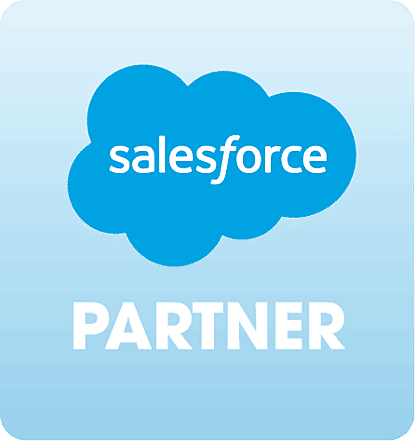IS SALESFORCE SUITABLE FOR SMALL BUSINESSES (SMB)?
IS SALESFORCE SUITABLE FOR SMALL BUSINESSES (SMB)?

Salesforce is a fantastic CRM solution for small businesses. It offers exclusive solutions for small businesses and helps them boost productivity and scale rapidly. With Salesforce, SMBs can easily track customer data, create actionable sales and marketing insights, and connect ross-department teams.
One good thing about Salesforce is that it doesn’t use a ‘one size fits all approach. There are endless ways to configure the platform for SMBs using any of the three products: Non-Profit Cloud, Salesforce Essentials for Small Businesses, and Professional and Enterprise.
Although Salesforce is a powerful tool, you might be wondering what are its pros and cons. So, let’s learn some of the advantages and disadvantages of Salesforce for small businesses:
Advantages
- Easy to Learn and Use: The Salesforce interface was designed with the end-user in mind. That means you don’t have to be a technical genius to use the platform. Your employees can easily learn how to navigate the sections and modules they need.
- Customizable and Scalable: Salesforce is completely customizable to your business needs. Whether you want a simple, pre-built installation or need something a little more complex, it’s possible to configure Salesforce to meet those needs. When your business grows and needs more from the platform, you can scale your Salesforce solution to fit your changing needs.
- License Variety: Salesforce has many options of licenses with powerful and flexible permissions management depending on the company size and goals. Essentials ($25 USD/user/month) and Professional ($75 USD/user/month) licenses are the solutions to consider for SMBs as a starting point for their cost/benefit value.
- Free Trial: Salesforce offers an appealing free trial where you can tinker with the features at no cost. Small businesses can try out Salesforce Essentials in a free trial.
- Cloud Solution: It is a cloud-based solution, meaning that a company doesn't need to possess costly server architecture to use the platform.
- Personalized Integrations: Those running a small business understand the importance of a quick reply to client needs. Salesforce encourages smooth customer interactions through a large number of mobile apps that can be downloaded on AppExchange and integrated into the existing ecosystem: MailChimp, Dropbox, Gmail, etc. While some of the integrations are available at least with the Professional license, SMBs still may take advantage of AppExchange as a platform for showing and selling their apps to the owners of Salesforce instances.
- Statistics & Analytics: No scalable growth is possible unless you work with data. A CRM in its core is a tracking tool providing you with analytics on your customers, helping you prioritize leads, find new opportunities and predict outcomes based on personalized reports.
Disadvantages
- Costs: Implementing Salesforce CRM seems to burn a hole in your pocket. Subscription, customization, and add-ons costs can add up quickly.
- Learning Curve: Salesforce customization capabilities both attract and scare away. Given its numerous clouds and countless features, a regular end-user can be overwhelmed.
- Limited Technical Support: It is common to run into technical issues while implementing or working with Salesforce. Although the company has a dedicated support team, automated technical services can fail to resolve your issue and it can take days to contact a live person to provide the answers you need. This delayed support can impact organizational efficiency.
- Time-Consuming Setup: While Salesforce has a wide range of functionalities and tools that businesses can use, it can be very confusing and time-consuming to implement Salesforce on your own. Not only will you need to learn how to use the software, but you will also need to identify the tools that are best suited for your business and build the necessary capabilities to make the platform work for you.
- Implementation Complexity: As mentioned, small businesses tend to focus on today, preferring temporary solutions to fix current problems rather than mapping out their growth strategy. In this regard, a CRM that may require weeks of implementation and further resources for upscale is likely to be excluded from possible options.
Salesforce is great for features and customizing a platform to meet the needs of SMBs but the setup process can be painful and using the software on a day-to-day basis can be challenging.
Many small businesses need a tailor-made CRM so they can work quickly and effortlessly. Find out if Salesforce is the right fit for your business by contacting FusionHawk.









